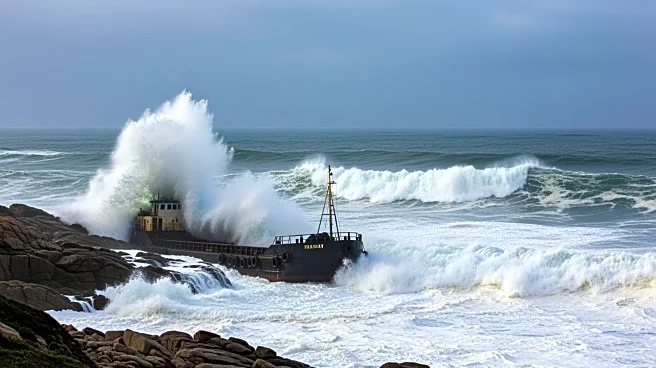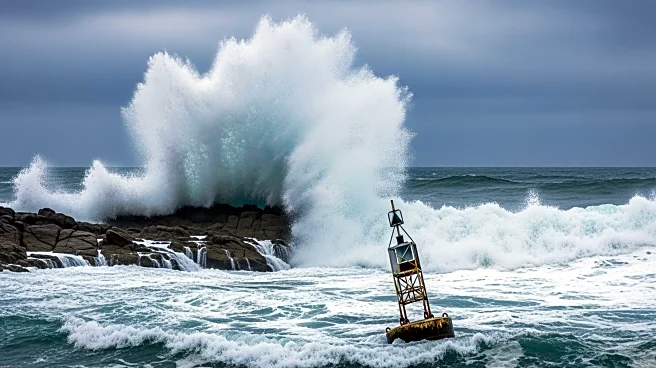Rapid Read • 8 min read
A recent study published in Current Biology has unveiled a unique behavior among streaked shearwaters, a type of large seabird. The research, led by Leo Uesaka, focused on the birds' bathroom habits, revealing that they exclusively poop while flying, at intervals of every 4 to 10 minutes. Initially, the study aimed to examine the birds' leg movements during takeoff, but the frequent droppings captured on video provided unexpected insights into their excretion behavior. This marks the first time scientists have observed seabird bathroom habits in their natural marine environment. The findings suggest that these droppings, rich in nitrogen and phosphorus, may inadvertently fertilize coastal waters, highlighting the importance of animal excretion in marine ecosystems.
AD
The discovery of streaked shearwaters' midair pooping ritual has significant ecological implications. The droppings contribute essential nutrients to coastal waters, potentially enhancing marine productivity. This behavior also raises questions about the birds' health and environmental roles, as their droppings can be a vector for avian influenza. Understanding these behaviors can provide insights into the ecological dynamics of marine environments and the role of seabirds in nutrient cycling. The study underscores the importance of animal behavior in maintaining ecosystem balance and could lead to further research on the ecological roles of seabirds.
Further studies are anticipated to delve deeper into the ecological roles of streaked shearwaters and other seabirds. Researchers may explore the potential health impacts of their droppings on marine life and coastal ecosystems. Additionally, there could be investigations into how these behaviors affect the spread of avian diseases. The findings may prompt conservation efforts to protect seabird populations and their habitats, ensuring the continued contribution of their ecological roles.
The study opens up discussions on the ethical considerations of wildlife research, particularly in understanding animal behaviors that impact ecosystems. It also highlights the need for interdisciplinary approaches combining biology, ecology, and environmental science to address complex ecological questions. Long-term, this research could influence policies on marine conservation and the management of coastal ecosystems.
AD
More Stories You Might Enjoy












